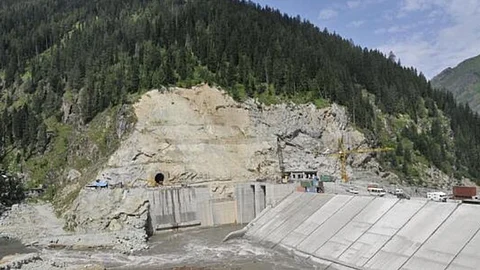

India has firmly rejected the latest ruling by the Permanent Court of Arbitration (PCA) in The Hague, which declared it has jurisdiction to continue hearing Pakistan’s objections to the Kishenganga and Ratle hydropower projects despite India’s suspension of the Indus Waters Treaty.
In a strongly worded statement issued on Friday, the Ministry of External Affairs called the court “illegal” and said it was “purportedly constituted under the Indus Waters Treaty, albeit in brazen violation of it.” India stressed that it has never recognised the PCA’s authority in this matter and has consistently refused to participate in its proceedings.
The PCA’s unanimous decision stated that India’s move in April to place the 1960 treaty in abeyance does not limit the court’s competence to adjudicate the dispute. The ruling, the court said, is binding and without appeal.
India suspended the treaty a day after the April 22 terror attack in Pahalgam, Jammu and Kashmir, which killed 26 civilians. Announcing the decision at the time, Foreign Secretary Vikram Misri said the suspension would remain until Pakistan “credibly and irrevocably abjures its support for cross-border terrorism.”
Reiterating this position on Friday, the external affairs ministry argued that India had acted within its sovereign rights under international law and is no longer bound to fulfil its obligations under the treaty. “No Court of Arbitration, much less this illegally constituted body which has no existence in the eye of law, has the jurisdiction to examine the legality of India’s actions,” the ministry said.
The Kishenganga (330 MW) and Ratle (850 MW) hydropower projects have been at the centre of a long-running dispute. Pakistan first objected to their design in 2015 and requested a neutral expert. But in 2016, Islamabad unilaterally withdrew that request and sought arbitration instead. The World Bank controversially appointed both a neutral expert and a Court of Arbitration—a step India has never accepted. While India has engaged with the neutral expert, it has boycotted the arbitration process.
Friday’s ruling follows the PCA’s earlier July 2023 decision asserting its competence to hear the case—another pronouncement India rejected.
The external affairs ministry described the latest award as a “charade at Pakistan’s behest” and accused Islamabad of trying to “escape accountability for its role as the global epicenter of terrorism.”
Pakistan has maintained that any diversion of Indus waters allocated to it by the treaty would be regarded as an “act of war,” and signalled plans to pursue the matter further in international forums.
The Indus Waters Treaty, brokered by the World Bank, allocates the western rivers—Indus, Jhelum, Chenab—to Pakistan and the eastern rivers—Ravi, Beas, Sutlej—to India, while granting each country limited rights over the other’s waters. India has always argued that the Kishenganga and Ratle are run-of-river projects permitted under the treaty.
India concluded its statement by reaffirming its view that the PCA lacks any legal basis to adjudicate the dispute or to question India’s sovereign decisions.
(This story is published from a syndicated feed)